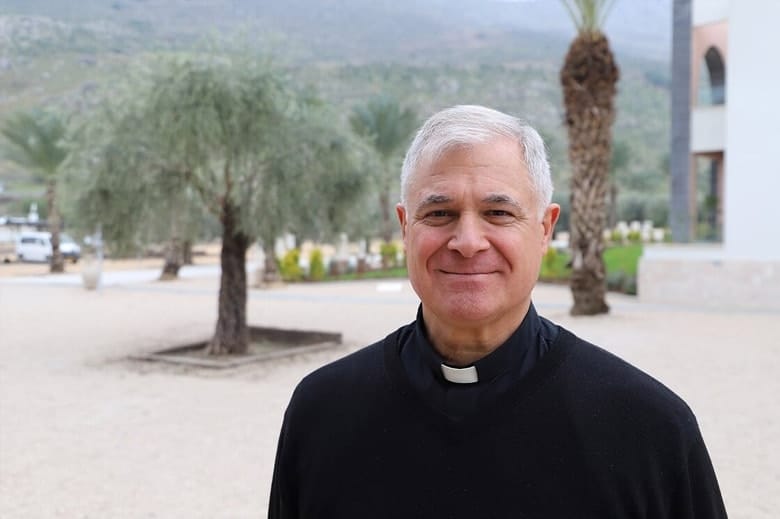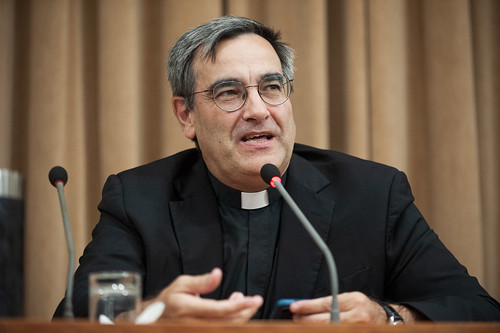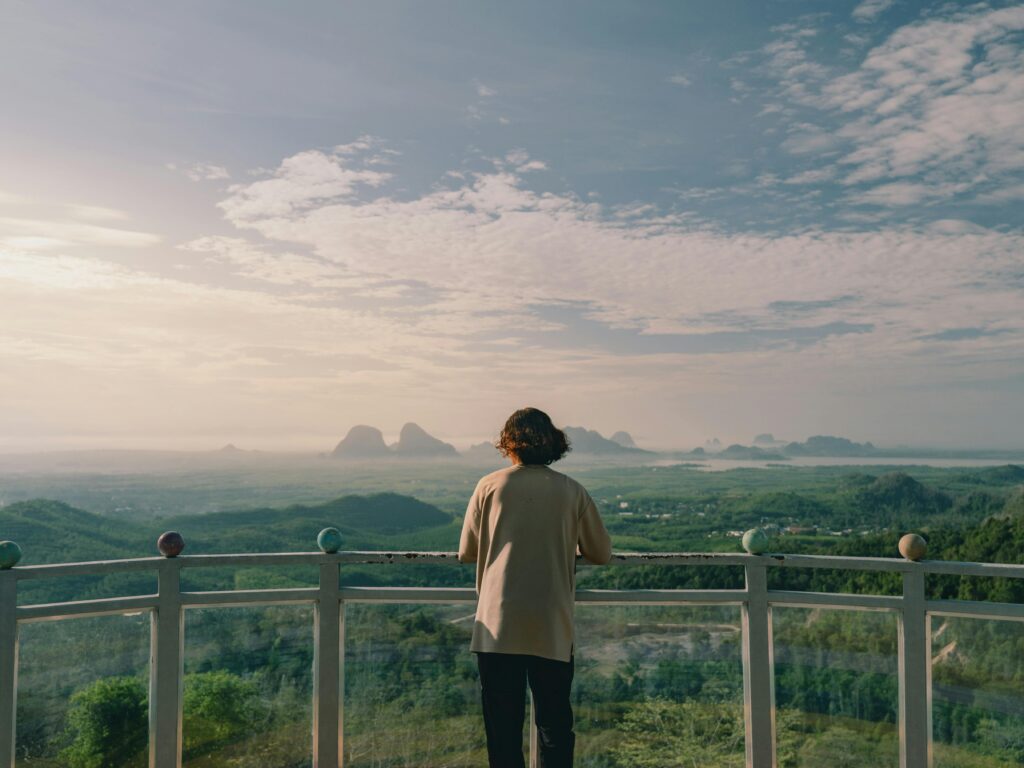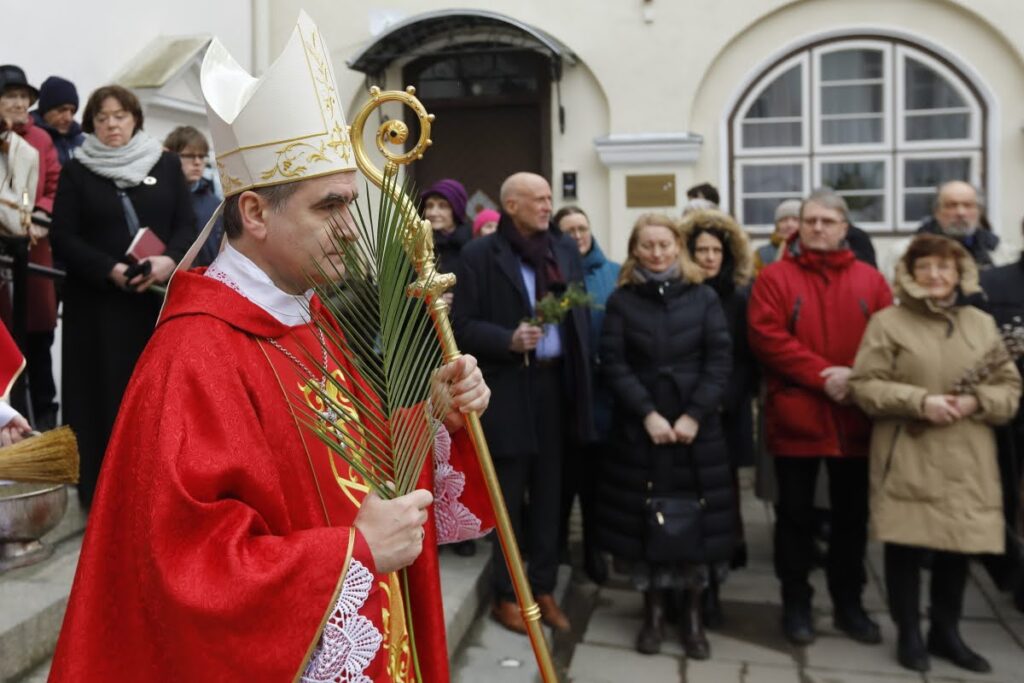Fr Juan Maria Solana on Spiritual Patrimony
The Director of the Magdala Project Talks About the Situation in This Region After the Outbreak of the Pandemic

Fr Juan Maria Solana, a priest of the Legionaries of Christ residing in the Holy Land, and Director of the Magdala Project in Israel, recalls that the Holy Land is a “spiritual patrimony of all of humanity, but especially of all Christians.”
In 2005, Mexican Father Solana initiated the Magdala Project, located in the town of the same name in the Northern District of Israel, known as the ancient city of Mary Magdalene, to highlight Jesus’ ministry in that area of the Lake of Galilee, to attract people there and to transform their lives. The Magdala Center is a place of prayer, praise, meditation, formation and spiritual growth for people of all religions. In November of 2019, a few months before the outbreak of the COVID-19 global health emergency, Magdala opened a new hospitality center for pilgrims and visitors.
The Magdala complex, developed in large part by Mexicans, is located on the shore of the Sea of Galilee. The House, which has large areas of prayer, meditation, and reflection, has 160 rooms, the majority with balconies and a view of the Sea of Galilee, as well as the ruins of the ancient city of Magdala.
In order to learn first hand the situation the Holy Land is living after a year of the pandemic, Exaudi held an exclusive interview with Father Solana, who talked about the activities carried out in the Center in the course of the health emergency, the prospects for the future, forthcoming activities and pilgrimages, and the importance of the Holy Land Collection for the upkeep of the Holy Places.
Here is a translation of the full interview.
* * *
Exaudi: The Holy Land has suffered terribly the consequences of the COVID-19 pandemic, as pilgrimages stopped and the economy of the Holy Places and its communities depend on this tourism. Can you tell us how you have lived this time of trial in Magdala in particular, and in this region in general? How were you able to survive?
Father Juan Solana: I’m afraid the suffering is everyone’s and everywhere. The loss of employment has been one of the sources of greatest suffering for many families. Perhaps it has been more serious here in the Holy Land because the Government closed the airport to pilgrims. Only a month ago, small groups of visitors began to come, with many conditions and restrictions. However, I must admit that the Israeli Government has given examples in many fields, such as prompt vaccination, control of the infected, etc. And, in the economic field, it supported all workers giving them 70% of their usual salary, for the whole time the pandemic has lasted. We are very sorry for those that for some reason we’re unable to benefit from this aid, especially those in the West Bank.
Exaudi: Tell us about Magdala’s activities during this year of the health emergency, how they were carried out, and what were their fruits?
Father Juan Solana: I can say we’ve engaged in great activity: in the first months of the pandemic it was an ad intra activity, specifically for us, who at the time were priests, consecrated women, and a group of volunteers and scholarship holders. We had programming and updating meetings; we had a healing retreat, a small pilgrimage for the volunteers, in addition to all the tasks of the Center, as we had to take charge of everything: vigilance, laundry, kitchen, gardens, cleaning, everything. Then we started something ad extra: especially the daily transmission of the Eucharist, some conferences, and spiritual talks, which led us to exordium in the virtual pilgrimage of October 2020, then to that of Lent 2021, and to the one we are preparing now for the forthcoming month of October. It’s been a time of great intensity and we are very satisfied.
Exaudi: Now that vaccination is advancing worldwide, pilgrimages to the Holy Land are also resuming. What expectations do you have for Magdala? Are people coming to the surroundings and lodging?
Father Juan Solana: Israel has been the leading country in the return to normality; however, after a glorious beginning, we are facing the reality that the vaccines do not cover totally the Delta variant, so we are returning to preventive measures. Both last year as well as this year, we have worked with local tourism in some periods. We have had very few pilgrims and tourists. They only come for a few hours to visit the place.
Exaudi: The Virtual Healing Pilgrimage, walking in the Holy Land, will take place from September 28 to November 4, 2021. In what will it consist? Why is it called “Healing”?
Father Juan Solana: During the last virtual pilgrimage, in Lent and Holy Week, we were in contact with innumerable people in need of spiritual, moral, and psychological relief. This motivated us to launch a specific pilgrimage in this field. In reality, we are all sick. Jesus Christ already said it. “I have not come to cure the healthy but the sick.” And the Scriptures also say that by “His wounds we have been healed.” We can say that God is the Great Doctor of Souls. To follow Sacred Scripture, the Gospel and the Holy Land from this point of view can alleviate many sufferings and correct situations that need to be illuminated by Christ and His Gospel.
Exaudi: What other plans are foreseen for the immediate future of the Magdala Project?
Father Juan Solana: We are planning the next virtual pilgrimage in Lent and Holy Week, as it will be very special and will require much logistic preparation, study, prayer, research, etc. For the time being, we keep it as a surprise. And here, in Magdala, we will continue with our daily transmissions and, hopefully, God willing, attending the pilgrims.
Exaudi: Can you remind Exaudi’s readers of the importance of the Holy Land Collection for this region?
Father Juan Solana: Happily. The Holy Land is a spiritual patrimony of all humanity, but especially of all Christians. In the 13th century, the Pope entrusted it to the Franciscans, and so, what is called “The Custody,” was established. The Custody is a Franciscan Province sui generis, something special, as it is made up of friars from all over the world, who offer the whole or part of their life to come and serve the Holy Places, as well as the local Christian population. The Custody has seminaries, schools, hospitals, housing for poor Christians, in addition to the property and care of the majority of the Holy Places where Jesus Christ lived.
I dare say that, without the Franciscans, at present not much of what is Christian would remain in the Holy Land. So Pope Pius IX established the Equestrian Order of the Holy Sepulcher, as well as a universal Collection to support the Custody of the Holy Land. In other words, for everyone to help financially so that Christian places and communities are maintained. This Collection is normally carried out on Good Friday in all churches worldwide. The <different> collections are received by the Nunciatures and sent to the Vatican, which distributes them for the support of the Custody and of some works of capital importance in this area of the world.
I hope we will all be generous with this Collection. This year and last year it was carried out on another date due to the pandemic, and that affected the results a lot. Hopefully, we will be conscious of the importance of material support for the Holy Land. The personal support is already done by the Franciscans and others, with the very edifying example of offering their lives and ministry for these causes.
Exaudi: How can people around the world help Magdala?
Father Juan Solana: Magdala is part of this great patrimony that the Holy Land is. Magdala was born thanks to the generosity of many people that continues to do so. Now that we have launched ourselves to virtual pilgrimages and the Social Networks to bring the Holy Land closer to Christian homes, we need much support to be able to consolidate and maintain it in time. They can help us through our Internet page: www.magdala.org From now on I thank from my heart all those that want to support us in the consolidation and expansion of Magdala.
Translation by Virginia M. Forrester
Related

Fernando Puig, new rector of Santa Croce
Fundación CARF
19 February, 2025
6 min

Unwanted loneliness
Exaudi Staff
18 February, 2025
25 min

«The sick need shelter, support, unconditional love and reconciliation»
Exaudi Staff
14 February, 2025
3 min

Bishop Jordan, Estonia: “The Catholic community is constantly growing. In 1970, there were less than ten of us, and now there are between 7,000 and 10,000 of us”
Ayuda a la Iglesia Necesitada
13 February, 2025
4 min
 (EN)
(EN)
 (ES)
(ES)
 (IT)
(IT)

